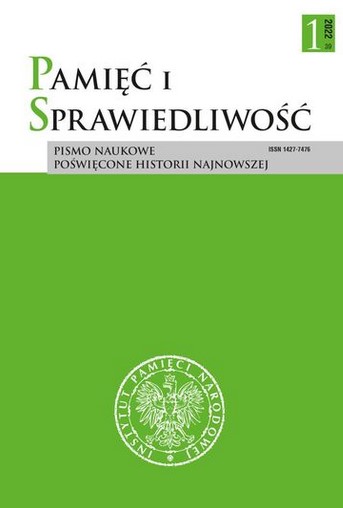Ignacy Erazm Matuszewski – krytyk i filozof literatury
Ignacy Erazm Matuszewski – a Critic and Philosopher of Literature
Author(s): Olaf KrysowskiSubject(s): Metaphysics, Aesthetics, Polish Literature, History of Art
Published by: Instytut Pamięci Narodowej
Keywords: Ignacy Erazm Matuszewski; literature; art; criticism; aesthetics; metaphysics; romanticism; positivism; modernism;
Summary/Abstract: The critical attitude of Ignacy Erazm Matuszewski, the father of the colonel Ignacy Hugo Matuszewski, was hallmarked by ideological eclecticism and inconsistencies that sometimes resulted from it. His ideas can be considered as characteristic for a mind developed in the conditions of intense cultural changes of the late nineteenth century. The author of the dissertation Devil in Poetry, educated in an atmosphere of respect for empirical inductivism, aesthetic and critical objectivity, modified his views such, that they allowed both the analysis of literary works of positivists and the assessment of the works of romantics and modernists who focused on metaphysical values. This flexibility let Matuszewski talk about art as a whole, regardless of established historical and genological divisions or differences between individual artistic disciplines. This flexibility also made his views universal, resistant to changing fashions in criticism. The writer’s death on 10 July 1919, which was preceded by deceases of many critics and modernist artists during World War I, created a gap in the Polish literary life at the beginning of the interwar period. Due to this gap, Matuszewski is sometimes called the “great absentee” of literary criticism after Poland gained independence.
Journal: Pamięć i Sprawiedliwość.
- Issue Year: 39/2022
- Issue No: 1
- Page Range: 476-489
- Page Count: 14
- Language: Polish

